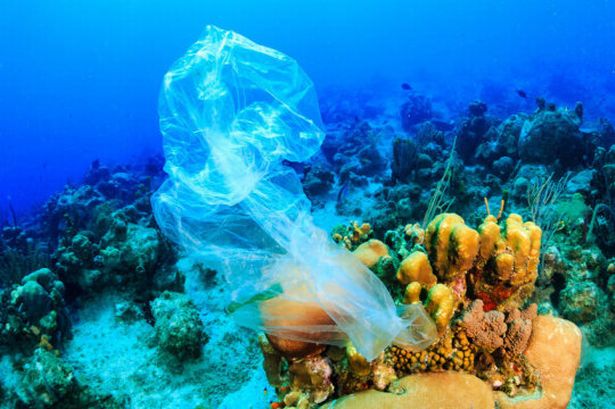Plastic pollution in the world’s oceans are threatening the already endangered coral reefs with disease, a new study has warned, according to Daily Mail.
More than 11 billion plastics are currently putting coral reefs at risk of becoming diseased and destroying the habitat of millions of fish species, the research said.
The study conducted estimates that this level will increase by 40 per cent within seven years.
‘That equates to an estimated 15.7 billion plastic items on coral reefs by 2025,’ said Joleah Lamb, who led the study.
Scientists are still uncertain why plastics are so dangerous for coral but saw how the exposure to plastics caused the organisms stress through light deprivation, toxin release and the absence of oxygen.
Coral reefs are living organisms that cover about 0.2 per cent of the ocean floor but account for nearly a quarter of all biodiversity found in oceans.
They are vital and are currently at risk due to global warming, which boosts diseases and can cause coral to bleach and die.
Ms Lamb and her team examined more than 120,000 corals on 159 reefs – some polluted with plastic, others not.
They found that the chance of disease increased from four to 89 per cent when corals came into contact with plastic.
Plastics may be dangerous to coral because they cause the organisms stress through light deprivation, toxin release and the absence of oxygen.
This allows bacteria and viruses to gain hold on the coral, with spikey coral more likely to snag any plastic rubbish.
‘Plastics make ideal vessels for colonising microscopic organisms that could trigger disease if they come into contact with corals,’ said Ms Lamb.
‘For example, plastic items such as those commonly made of polypropylene, like bottle caps and toothbrushes, have been shown to become heavily inhabited by bacteria that are associated with a globally devastating group of coral diseases known as white syndromes,’ she said.
The problem of plastic pollution is widespread in the world’s oceans and is rapidly getting worse.
The survival of coral reefs is at a ‘make or break’ point and that extinction was possible within a generation if we did not put forward any conservation efforts.
N.H.Kh

